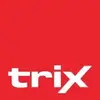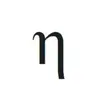
Jinja2
Jinja2 is a templating engine that has multiple characteristics, including high-speed, extensible, and expressive. It enables the developer to write code with syntax that is similar to Python by providing Special placeholders in the template. The full list of features includes extensible syntax, filters, functions, and tests, template inclusion and inheritance, import and define macros within templates, and more. Apart from this, it also comes with I18N support with Babel and renders untrusted templates by providing a sandboxed environment. The approach of Jinja2 is that just because application logic belongs in python, it should not make the job of the template designer harder.
Jinja2 Alternatives
#1 Jquery-template
Jquery-template is an open-source and high-performance plugin for jQuery whose main functionality is to enable templating without cluttering JS code with markup. Developers will certainly enjoy its simplicity, conciseness, and robustness. You can load HTML files as templates, or other than that can also take as a template a jQuery object. It comes packed with several features like plain and understandable syntax and using HTML for templates and lets you utilize formatters to make data more readable. Other functionalities include the ability to define templates for data display and enhancing the user experience through cache templates, data client-side, and pass processing to the client.
#2 NANO – jQuery Template Engine
NANO is a simple and open-source jQuery Template Engine developed by trix.pl and released under the MIT License. You can access and download the source code from the GitHub Page, which also lists some of the examples to help you get familiar with it. First-timers/Beginners can take a look at its basic usage along with a brief but clear description to enable them to understand how it works. It also provides some advanced examples on jsfiddle containing Twitter search results. The examples are editable and can be previewed to see them in action.
#3 Pug
Pug is a powerful, lightweight, and multi-featured templated engine for Node.js. It takes inspiration from Haml and is written in JavaScript for the purpose of running on Node.js and browsers. You can read the extensive documentation from its official website. It is open-source and so, therefore, can be downloaded from both the official website and GitHub. You will need to have the latest version of Node.js for installation. Pug is concise, clean, and has a syntax that is sensitive to white space for writing HTML.
#4 Eta JS
Eta JS is an open-source, high-performance, and customizable JavaScript template engine that is developed using TypeScript and can be used in a browser, Nodejs, or Deno. It has a much smaller size which amounts to 2.4KB in gzipped form. Unlike EJS, it is much faster at rendering and compiling. Also, you can take a look at the provided benchmarks to see them in action. The template engine supports layouts and Deno out of the box.
Another difference is that it allows left whitespace control which is not the case with EJS as it utilizes another key for this purpose. Furthermore, you get improved flexibility with delimiters. Eta JS offers support for plugins and lets the developer use custom tag-type prefixes. The template engine delivers an unmatched performance which can be witnessed through the given benchmarks. The template syntax is influenced by JS and gives you the opportunity to use JavaScript for the purpose of writing templates, negating the need to memorize a new template syntax. The team behind Eta JS is the same as the one that created Squirrelly to serve as an alternative to EJS. Lastly, it supports caching, plugins, custom delimiters, and more.
#5 TypeScript
TypeScript is a powerful and strongly typed programming language developed by Microsoft to Simplify JS code, enabling the developer to debug and read it easily. It enriches JavaScript with additional syntax to allow for better integration with your editor. The code of TypeScript is converted into JavaScript, which means that it can seamlessly run wherever JavaScript can run. This applies to apps, Deno, browsers, and Node.js. It comprehends JavaScript and provides you with great tooling by using type inference without requiring additional code. TypeScript is influenced by JavaScript, C#, and Java and has influenced AssemblyScript and AtScript.
#6 Handlebars
Handlebars is a simple templating language that provides the necessary functionality to enable you to build semantic templates while eliminating frustration. The features include Semantic templates, Fast execution, Mustache-compatible. It works perfectly well with Mustache templates, and in many scenarios, the swapping out of Handlebars with Mustache is possible without changing your current templates. The templates are compiled into JavaScript functions, resulting in an unrivaled performance than similar template engines. The differences between Mustache and Handlebars.js include Delimited Comments, Nested Paths, Literal values, Helpers, and Block Expressions. It supports many environments such as IE 6+, Node.js 10+, Opera 11 +, Google Chrome, and Mozilla Firefox.
#7 Nunjucks
Nunjucks is a robust, open-source, and best-in-class templating language for JavaScript being used in prominent places online such as Firefox Marketplace, Mozilla Webmaker, and Apostrophe CMS. It runs on Node, existing web browsers like Chrome, Safari, and via precompilation options. The top feature is extensibility which is made possible through custom filters and extensions. It comes with many functionalities like asynchronous control, block inheritance, macros, auto escaping, and more. Also, it is influenced by jinja2. You can use template inheritance for templates reuse and define skeleton structures to be filled in by child templates.
#8 JsViews: Next-generation jQuery Templates
JsViews is an open-source, flexible, and powerful Next-generation MVP and MVVM framework offering comparable speed to that of jQuery and JsRender Templates. It is based on JsRender templates and enables the creation of interactive data-driven single-page websites and apps by providing an all-in-one MVVM platform. You can install it from the jsviews.com site for free. It also supports CDN delivery, and other than that, you can install it using Bower, or you can simply load it via RequireJS, which is an AMD script loader.
#9 JsRender
JsRender is an open-source, minified, robust, and extensible templating engine that you can comfortably run on Node.js or the browser either with jQuery or without it. Both JsRender and JsViews join together to allow you to take advantage of the next-gen implementation of jQuery Data Link and jQuery Templates, which are the official jQuery plugins. You can go through API docs and tutorials, documentation, samples and download and view them from the official website. Js Render and JsViews are created to fulfill unique purposes. The former helps with the data-driven rendering of templates to strings, whereas JsViews incorporates JsRender templates.
#10 Mustache
Mustache is an open-source web template system released under the MIT license offering implementations for XQuery, ActionScript, JavaScript, .NET, Crystal, Rust, Julia, CoffeeScript, Fantom, PHP, Smalltalk, Swift, Lua, OCaml, CFEngine, D, Clojure, Erlang, Perl, and more. It is a logic-less system due to the fact that it doesn’t possess explicit control flow statements such as for loops or if and else conditionals. You can accomplish conditional evaluation and looping via lambdas and section tags processing lists. The reason for its name is because of the usage of braces, { }, whose appearance matches with a mustache.
#11 Phoenix Language
Phoenix is an open-source and flexible template and language engine that compiles to PHP. The main benefit of the language is that it enables you to program web servers in PHP with a readable and concise syntax. The features include easy integration with your existing code, produces code that is not only readable but is a copy of handcrafted code. Style sheets and inline scripts are extracted into external files. The line numbers remain the same to allow for debugging and development. It maintains the structure and shape of PHP syntax, excluding a few constructs.
#12 jQote2
jQote2 is a versatile, resourceful, open-source template engine for jQuery. It is released under the MIT license and consumes little disk space for the installation to take place. It is developed by aefxx and savage69kr, and both of them are also responsible for fixing any issues presented by the users. The code and all the related files are available on GitHub. The absence of extensive documentation will not have an effect on developers who already have knowledge about templating engines and possess familiarity with the Syntax of JS, JQuery.
#13 Interpose.js
Interpose.js is an open-source and lightweight templating engine for JavaScript that comes with multiple characteristics, including Fast, Easy, Safe, and Flexible. It requires little space, currently, 636 bytes, and this can be further minified into 414 bytes (gzipped). The purpose of a template engine is that it allows your code to become easier to maintain and write as well as making it smaller. The templating engine compiles templates into JS functions, allowing you to reuse them without parsing the template continuously.
It is flexible, and anyone can override the default delimiters without restrictions. Those familiar with JavaScript will not have a difficult time working with templates because they already have experience in the language. JS Developers can quickly debug, write and understand templates. The output is encoded in HTML by default, allowing you to work with full confidence without worrying about security and malicious user input. Furthermore, those who want to inject HTML into a template can circumvent this feature altogether.
#14 Slm
Slm is an open-source template engine for Node featuring similarities with Jade. It is lightweight and is a port of slimmer. The features include elegant Syntax with shortcut tags and the use of indentation instead of closing tags, resulting in a short syntax. It ensures maximum safety by offering support for the htmlSafe attribute and, by default, provides automatic HTML escaping. It tightly integrates with hapijs, and is high-performance. The speed is much like Hogan and ECT, and this can be evidenced by benchmarks. Another great feature is that it included embedded engines such as Textile, CoffeeScript, and Markdown.














